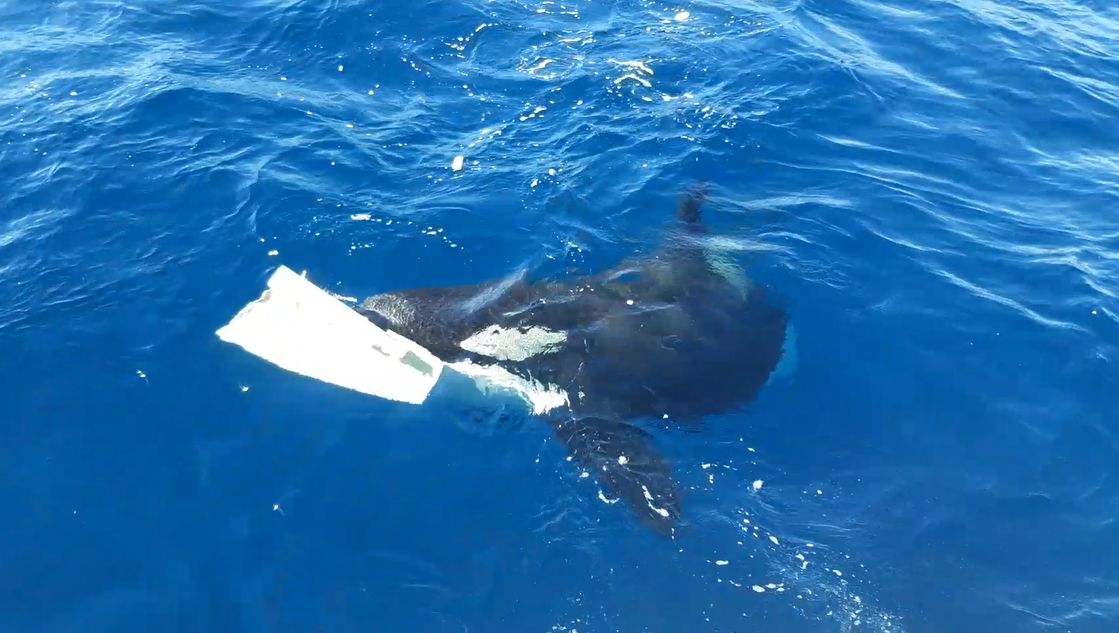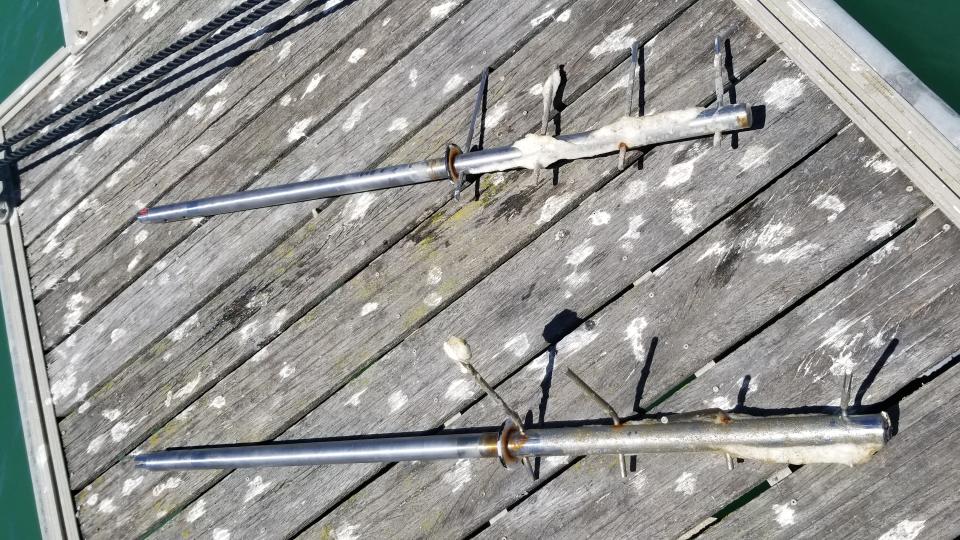Orcas attack boat with ruthless efficiency, tearing off rudders in just 15 minutes

Orcas that attacked a sailboat in the Strait of Gibraltar ripped its two rudders off in less than 15 minutes then played with the debris, dramatic footage of the encounter shows.
One of the orcas also came back for more as the crew headed inshore, chasing the boat all the way to the marina in Sotogrande, Spain, where it tore off what was left of the rudders.
"They went directly for the rudders," Dan Kriz, a skipper who was aboard the catamaran and delivering it for the Florida-based company Catamaran Guru, told Live Science in an email. "The whole thing took about 10 to 15 minutes."
The catamaran was passing through the strait on its way to the Canary Islands on April 15 when a pod of four or five orcas, at least three of them juveniles, surfaced and launched themselves at the boat's two rudders. Kriz said he saw two of the juveniles make a beeline for the rudders, while an adult orca was "cruising around."
Related: In rare attack, 30 orcas 'badly wounded' 2 adult gray whales in California
In a video of the encounter, one of the juveniles glides under the stern then head-buts the boat's underside while thrashing in the water. Five seconds later, the orca appears again holding a large piece of fiberglass in its mouth, which it holds up to the surface while another orca swims under the stern.
The assault was targeted and efficient, but the orcas stuck around and "played with pieces of fiberglass after they took them off," Kriz said.

But that was not the end of the encounter. "When we were motoring to the marina, we saw an adult orca chasing us," Kriz said.
The crew immediately turned the engine off upon the orca's return. "We stopped and she took what was left of the rudders," Kriz said. "Then they let us go." Pictures of the rudders after the encounter show the metal scaffold bent and stripped of all the fiberglass.
This isn't the first time orcas have followed a boat inshore. An encounter with orcas in the Strait of Gibraltar on May 24 ended with the pod following a yacht all the way to port.
The April 15 encounter is the second time Kriz has been confronted by orcas in the Strait of Gibraltar. Three years ago, when the attacks first started, his crew was one of the first to experience the Iberian orcas' unusual behavior, when a pod of eight circled and nudged the yacht for over an hour. Since then, researchers have recorded over 500 cases of orcas bumping against boats, three of them resulting in boats sinking. Scientists think a female called White Gladis triggered the behavior after she was traumatized by a collision with a boat or illegal entrapment.

RELATED STORIES
—Grisly new footage shows orcas attacking a great white shark and eating its liver
—Orca males are burnouts who let their moms do all the hunting, surprising study finds
The orca attacks appear to have become more swift since his first encounter, Kriz said. "This time they didn't circle the boat. Compared with 2020, it didn't take that long."
However, experts say there is no evidence that orcas are more efficient now. "They still do the same as in 2020," said Mónica González, a marine biologist with the Coordinadora para o Estudo dos Mamíferos Mariños, or Coordinator for the Study of Marine Mammals (CEMMA).
"We are collecting all the information we can about interactions and we don't have anything new," González told Live Science in an email.

